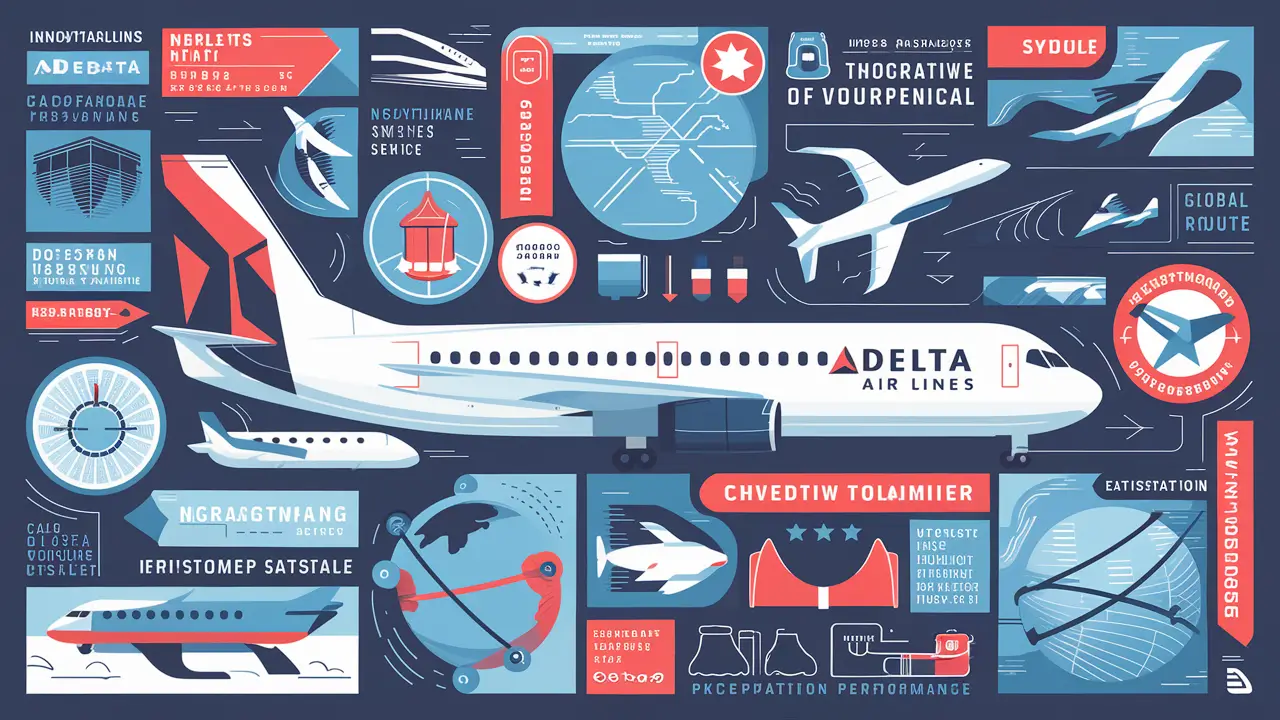What are the strengths of Delta Air Lines?

Delta Air Lines: It has been established that the airline has the following key strengths:
Delta Air Lines has been one of the major Delta Airlines in the market since the early periods of aviation; this airline was founded in 1924 in Macon, Georgia, in the United States of America. Based on its near-century existence, Delta has transformed from a small dusting crop company to one of the biggest airlines in the world. It operates in more than 50 destinations worldwide, serving over 300 locations.
Delta has stood the test of time in an intensely competitive and challenging industry thanks to some key strengths:
Extensive Network and Partnerships
Delta's extensive coverage in the US and throughout the world helps the business transport people to or from six continents, therefore enabling the corporation to carry passengers anywhere. Currently, it connects to the hundreds of spokes in the network from hubs in the big cities of Atlanta, Detroit, Minneapolis, New York City, Salt Lake City, and Seattle. Every day, the airline runs more than 15,000 flights.
To further its worldwide network, Delta also has codeshare and joint venture arrangements with many foreign-based airlines. Among the significant relationships are its transatlantic joint venture with Virgin Atlantic and Air France-KLM, which facilitates passenger access to over two hundred locations throughout Europe. For the transpacific market, it also has codeshare agreements with Korean Air, providing more connections from North America to Asia. These alliances expand Delta's worldwide network as well.
Loyal Customer Base
The management of Delta has since its establishment emphasized the provision of a good flying experience that, due to the passage of time, has created a loyal client base. It also offers excellent service and is highly reliable, which has earned it a position among the world’s most admired airline companies. SkyMiles is the largest program of Delta and is used through a mobile application and website; millions of people are actively using this program. These are the customers who will prefer to fly with Delta Airlines every chance they get, which translates to a continuous and steady inflow of income to the business.
Innovation and investment in technology
This paper, however, presents Delta as a company that has transformed itself over the years instead of just relying on past successes. AT invests a lot of money annually in technology to enhance all sectors of the airline business. This refers to improved demand forecasting analytics to vary flight capacity, baggage tracking for passengers, automated airport check-ins, WiFi connectivity on flights, as well as the best mobile app in the industry. Such innovations improve the customer experience and the efficiency of processes that take place in the background, for example, in a store. It has also ensured that it acquires new efficient models of aircraft to serve its passengers, especially on long-haul routes where passengers are offered comfortable lie-flat beds in premium cabins.
Great operating profit and excellent control of operational costs
Fluent and consistent operations are critical to airlines’ business strategies because airlines’ fixed costs are significant at the same time and most airlines tend to have small margins of profits on average. At the operational level, Delta performs exceptionally well in areas such as on-time arrivals or baggage mishandling. Another competitive indicator is the completion rate, through which the carrier can always deliver passengers to the desired locations without frequent disruptions or cancellations.
In the same way, it is financially viable, as proved by Delta’s sound cost management disciplines that were established over the past years. During periods of demand fluctuation, the airline seeks to enhance productivity as well as exercise very strategic capacity management. It can thus ensure that costs are well matched to revenues across different cycles of business operations. Indeed, before the start of the pandemic, it can be noted that the balance of Delta was much stronger than some of its competitors in terms of liquidity.
Talented Staff and Leadership
In the long run, the success or failure of a service business is anchored on the competency of the people in that business. Often, Delta has committed a great deal of resources towards attracting, cultivating, and maintaining effective human capital for many years. Flight attendants and gate agents are some of the frontline customer-interface personnel who are critical when it comes to ensuring that the flying experience is fantastic. Delta’s pilot union is also less militant than some competitors and in general, the two entities seem to have more of a partnership.
Also, Delta has experienced relatively strong and sustainable leadership, while many other airlines have experienced a high turnover of leadership. It has a management team that has the flexibility and the experience to steer the airline through cycles of high oil prices, economic downturns, other airline bankruptcies, mergers, and acquisitions, security threats, various health scares, and other forms of external pressures that the industry experiences on a recurrent basis.
In conclusion, Delta uses its barrier strengths, including network reach, a loyal customer base, more innovation compared to its rivals, excellent operations, cost control, and human capital, to operate in the airline industry with many competitors. Having achieved this status, it deserves to be among the premier world airlines, which is demonstrated by mastering quite a long and challenging process in the airline business. As these points indicate, Delta has a solid foundation for continued differentiation and is poised to soar into the future.
Book your Delta Airlines ticket now! Call +1 833-902-2090
